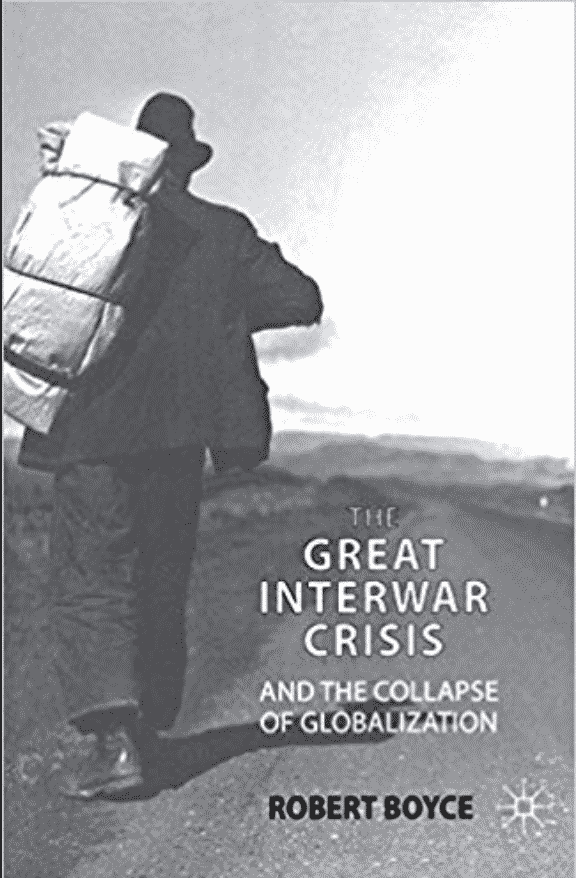We conventionally date the onset of the Great Depression to 1929. This make sense from the point of view of conventional business-cycle analysis. But the Great Depression wasn’t “great” because it was a conventional recession. It was great because it blew the interwar order apart. And it wasn’t in 1929, it was in 1931 that it became obvious that the downturn was going to have that kind of impact. In fact as I argue in Deluge the initial effect of the recession was to bind the status quo powers – US, UK, France, Japan – more closely together. It was in 1931 that the world really came apart. The banking systems of Austria and Germany failed and then the UK left the gold standard, followed by a large part of the rest of the world economy.
I really liked Swiss historian Tobias Straumann’s elegantly targeted new history of the politics and economics of 1931. I did a review for the FT this weekend.

The story-telling is compelling. The message is powerful and delivered with a real punch. In fact I was so impressed that it made me reevaluate the short-book genre.
1931 is longer than an essay, of course. But you can actually finish it at a single sitting on a long flight or a weekend of reading. As a result it lodges itself in your memory as a single powerful statement about the toxicity of large-scale intergovernmental public debt under democratic conditions.
I end the review quipping that Europe needs a German edition of Straumann’s book as soon as possible. And I am delighted to learn from Tobias that a German version is in the works.
I have various differences with Tobias on points of emphasis that I will expand upon on a future blogpost. You can infer them from a reading of Deluge, which begins the story in the middle of World War I, but finishes on the same terrain as Tobias. The idiosyncratic chronology of Deluge is chosen precisely to make this point: the American-centered order of global power that emerged after 1916 suffered its first shipwreck in 1931.
My only real frustration with Tobias’s book is that he didn’t make use of Robert Boyce’s The Great Interwar Crisis and the Collapse of Globalization. If you liked Deluge you will like Boyce’s book.

Boyce’s book is essential reading on the political economy of the interwar period. It is particularly good on 1931 . The fact that it isn’t in Straumann’s bibliography is indicative of the way in which it fell between the stools. It is rather too heavy on the economics for the much diminished crowd of diplomatic history still interested in the interwar period. It is far too heavy on the history for the economic historians of the school of Barry Eichengreen, who are Straumann’s main point of reference.
The concluding chapters of my Deluge are heavily indebted to Boyce. I would also recommend his earlier book British Capitalism at the Crossroads, 1919-1932: A study in Politics, Economics and International Relations. For an amazon link click here.
The significance of all this is that both Boyce and I agree in taking a much dimmer view of the position of the British and the Americans in 1931 and are have much more sympathy for the French. Straumann is even-handed in his treatment but underestimates the gallo-phobia in London and Washington DC. Why that in turn matters is that Boyce and I adopt a revised version of the “hegemonic failure” interpretation of the interwar crisis, originally advanced by Kindleberger, as opposed to the polycentric model of “cooperation failure” favored by Eichengreen, Clavin et al. This in turn is related to developments in the study International Political Economy in the post Bretton Woods era.
Much more on this in a future blogpost. For now, get yourself a copy of Straumann’s book for the beach!
